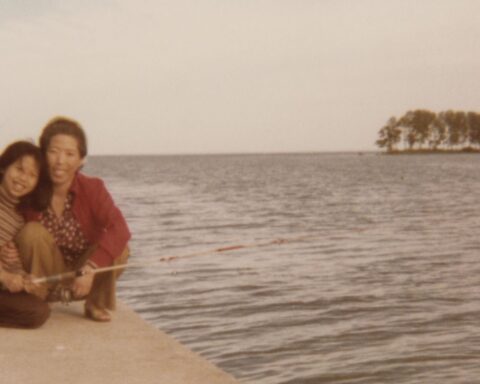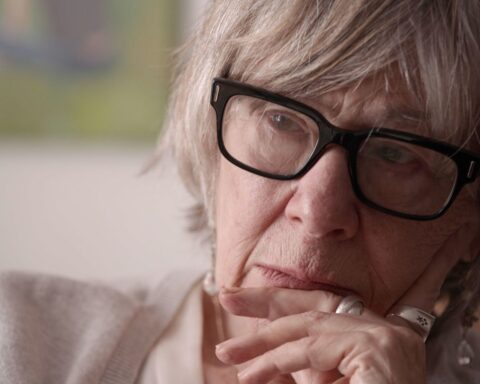“Happy families are all alike; every unhappy family is unhappy in its own way.”—Leo Tolstoy, Anna Karenina
One approaches the release of Sarah Polley’s highly anticipated feature documentary about her family with a mixture of relief and trepidation. Relief—-because the secret, long known in the Canadian media community, is now out. Trepidation—because no one wants to review this film and get it wrong.
First off, I’d like to praise not only Ms. Polley for her determination to tell her family’s story in her own way but also the Canadian media, which steadfastly refused to acknowledge in print the long-held rumour that the famous actor-director’s parentage was in question. It’s hard to imagine that tabloid journalists in Britain would have kept silent if Keira Knightley’s family roots were questioned or that the celebrity driven TV anchors on American “entertainment” shows would have resisted the temptation to out Kirsten Dunst in a similar situation.
Here, the Canuck media kept silent until Stories We Tell premiered at last month’s TIFF. Even then, journalists often resisted the impulse to state Ms. Polley’s revelation in the mandated capsule reviews. This may be the 21st century but many of us still adhere to 19th century principles.
Was it worth it? Absolutely.
The years of gestation allowed Ms. Polley to create a film that goes beyond clichés and investigates Tolstoy’s dictum about the unique nature of unhappy families. In a film that is deliberately layered, she only arrives at truths through a complicated trail of rumours, jokes, anecdotes and innuendos. As the title of the film states, she’s less interested in dealing with the facts in her life than in looking at how people construct their lives through their own mythologies.
In Sarah Polley’s case, the rumours about who her biological father might be was the stuff of slightly cruel family humor throughout her youth. Although she doesn’t resemble Michael Polley, her titular father, she certainly looks like Diane, her mother, which would normally have been the only subject of familial conversation. (What’s more of a cliché than ‘you look so much like your mum?’) After Diane died when she was 11, the family’s jokes did seem to centre on how different she was from her father. Or so the stories go, in the film.
One thing seems certain. Diane Polley was a force of nature, a strong willed, funny, vibrant individual. Much of the first half of Stories We Tell concentrates on the irrepressible Diane, a woman who left her husband and lost custody of her first two children after she fell in love with Michael, a British actor.
Of course, the audience doesn’t know about the first husband or the loss of the kids until well into the film. In this tale of love and lies, Ms. Polley holds back that vital piece of her mother’s puzzling life until she’s established how beloved Diane was by her children (including at least one from her initial husband) and friends.
To further complicate matters, Ms. Polley avoids using many images of her mother, preferring to use the actress and singer Rebecca Jenkins to play her role in the film. This, of course, turns the woman Sarah Polley evokes through tales from her extended family into a figure of drama—-hardly real at all.
When Polley begins to hear more rumours that her mother had an affair in Montreal while acting in a comeback theatrical role less than a year before she was born, it feels like the stuff of legends. Or so Polley presents it—until she actually meets her biological father, a larger than life film producer, who is happy to acknowledge his parentage.
Where does that leave Michael Polley, a creative man, who abandoned his acting career to take steady employment while raising a family? Here’s someone who spent precious time with Sarah Polley, being the sole parent during her teenage years. Biology aside, isn’t he a father?
Stories We Tell takes on complex issues of parentage, commitment and romance. It deliberately obfuscates facts, the better to play up legends. The love and anger fostered in most families is dramatized with wit and compassion throughout the film. Sarah Polley has made a memoir—an essay and an artful documentary—that delves into the secrets and lies at the roots of the lives of many people. Stories We Tell is a courageous and beautifully made film, which richly rewards viewers—including more than a few critics.








